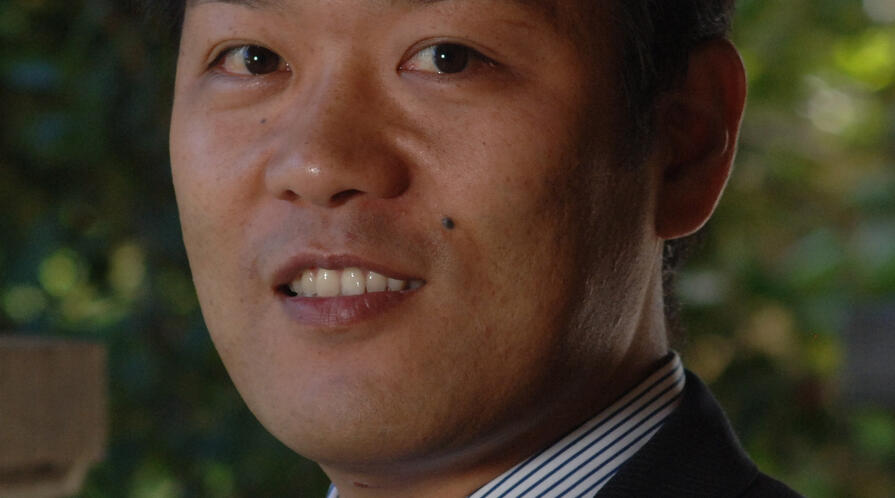An interview with Yuichi Moronaga

Understanding the emotional connection that people have to products inspires the innovative research and work of current Corporate Affiliates Program Fellow Yuichi Moronaga.
Moronaga engaged in policy-related work for Japan's Ministry of Economy, Trade, and Industry (METI) for nearly a decade, and he most recently served as a deputy manager for the Prime Minister's Cabinet Secretariat. As a student, Moronaga, who holds a bachelor's degree in mechanical engineering and a master's degree in biomedical engineering from Keio University in Yokohama, studied universal design--the design of making products, such as drinking fountains, and spaces, such as public parks, accessible to all. Moronaga took universal design one-step further by considering the emotional aspect of design, factoring positive feeling into accessibility.
In his work for METI, Moronaga applied his creativity and knowledge of universal design to numerous projects, including a child-focused policy agenda. Moronaga and his colleagues considered the psychology and physique of children when developing the agenda, noting the curiosity of children for exploring places considered dangerous by adults--those that are high, dark, and enclosed--and the broad range of variations in children's physiques. Mean data is not appropriate for child-focused design, says Moronaga, and so he and his team measured approximately 50 different body parts in order to provide a broad data set for designers to work from. After five years, child-focused design is catching on in Japan. A Kids Design award is now in place and the Kids Design Association, a non-profit organization, monitors products, businesses, and public spaces for child safety. Nearly 80 businesses in Japan are now dedicated to child-focused design. At the recent APEC Forum held in Japan, METI sponsored a booth displaying child-friendly products. Moronaga hopes that the trend will spread to other countries.
At the Walter H. Shorenstein Asia-Pacific Research Center (Shorenstein APARC), Moronaga is now engaging in research about essential value, which he describes as the "background story" behind companies and their products. Marketing based on essential value focuses on such things as a tradition of excellence, quality materials, and careful craftsmanship behind a company or product, which causes consumers to feel good about their purchase. The online shoe retailer Zappos, which emphasizes its customer service, is an example of a company that markets essential value. Moronaga is currently studying how social media enhances essential value, such as the way that positive consumer recommendations raise the value of a product. Already widespread in the United States-especially California, Moronaga says consumer reviews are catching on more in Japan.
Moronaga values the opportunity to speak with people at Stanford University and in local companies about his research and work experience, and about topics ranging from the environment to politics. Amidst the prevalence of hybrid cars and exciting green technology research in California, he was surprised to find that energy-saving technologies, such as solar panels, are not as widespread as in Japan. On the other hand, he appreciates discussions and hearing American perspectives on political topics, such as security issues, that he feels are less commonly discussed in Japan.
Moronaga views the connections with people that he and his family are making while at Shorenstein APARC this year as long term and he hopes that his son, who is four years old, will have a happy adjustment to living in the United States and remember the experience for the rest of his life.
